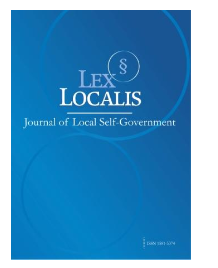INTEGRATING CIRCULAR ECONOMY AND MAQĀṢID AL-SHARĪ‘AH: THE MEDIATING ROLE OF HIFDZ AL BI’AH IN ACHIEVING ECONOMIC JUSTICE
DOI:
https://doi.org/10.52152/rqjmhg51Keywords:
circular economy; economic justice; maqāṣid al-sharī‘ah; hifdz al bi’ah.Abstract
Sustainability challenges highlight tensions between anthropocentrism and ecocentrism. Circular Economy (CE) offers solutions through efficiency and waste reduction, but often lacks normative grounding in justice and ethics. In Islam, maqāṣid al-sharī‘ah, particularly ḥifẓ al-bi’ah (environmental protection) and al-‘adl (justice), provide such an ethical foundation. This study develops a conceptual framework of a Just Economy that integrates CE with Islamic ethics, examining how paradigmatic inputs are operationalized, mediated, and translated into just outcomes. Using a conceptual normative approach and a literature review with a synthesis-based analysis (2020–2025), the study synthesizes CE practices with maqāṣid al-sharī‘ah to build a multi-layered framework. The model shows: (i) Input by Hybrid Synthesis: Balance Between Humans And Nature; (ii) CE mechanisms (eco-design, zero waste, circular supply chains, green finance, digitalization); (iii) mediation by ḥifẓ al-bi’ah (anti-isrāf, ecological trusteeship, biodiversity protection, sharia-compliant waste management, Islamic education); and (iv) outcomes of al-‘adl (economic, social, and intergenerational justice, transparency); J Just Economy as a goal that includes Regulatory, Finance, Social Equity, Education & Religion International. The framework advances CE theory, guides business practice in Muslim contexts, and informs policies on green finance, waste governance, and SDG alignment.
Downloads
Published
Issue
Section
License
Copyright (c) 2025 Lex localis - Journal of Local Self-Government

This work is licensed under a Creative Commons Attribution-NonCommercial-NoDerivatives 4.0 International License.








